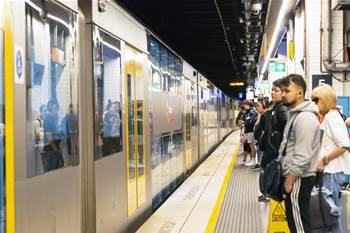Transport for NSW is planning to run a series of quantum computing pilots from early next year, as it doubles down on ambitions to use the technology to help operate the public transport network.
After kicking off early explorations with the technology this year, TfNSW has revealed a more detailed plan to use quantum computing to tackle network management and congestion issues.
The agency is set to hold briefing sessions with industry in coming weeks to find partners to help research, develop and implement the pilots, with plans to finalise contracts and co-investment proposals in early 2022.
TfNSW also plans to establish a centre for quantum technology at Tech Central, Sydney’s proposed innovation and technology precinct near Central Station, which moved one step closer to reality last month.
The centre will be led by a quantum technology director and fellow of quantum technology, with advice to be provided by an advisory panel of 11 experts from across government and industry.
NSW chief data scientist Ian Oppermann, UNSW professor Michelle Simmons, Sydney University professor Stephen Bartlett, Macquarie University associate professor Dominic Berry and UTS professor Michael Bremner are just some of the panellists.
While details of the technology pilots remain scarce, dynamic scheduling, whereby schedules are updated in real-time based on crowding across the network, appears top of mind for TfNSW.
Other potential applications include intelligence traffic control, the ability to respond to network disruptions in real-time, mobility-as-a-service and predictive maintenance scheduling.
“[Quantum technology] has the potential to solve problems on the network in real time by instantly recalculating timetables and routes,” Transport Minister Rob Stokes said.
“It could essentially become a ‘self-healing’ network that interacts with cutting-edge technologies, including autonomous vehicles, artificial intelligence and smart sensors.
“It may also allow TfNSW to give customers personalised, real-time information to make their journeys faster, safer and more reliable.”
TfNSW currently uses machine learning technology in the AWS ecosystem to predict delays across the network using weather, Opal card data and special event data.
Deputy Premier and Regional Transport Minister Paul Toole also pointed to the technology being used to calculate the safest route on the road network in the event of a bushfire or flood.
“The faster you get information in an emergency, the better your chances of protecting life and property are, so [the technology] will be a game changer when it’s rolled out to the regions,” he said.
Speaking with iTnews, TfNSW deputy secretary customer strategic and technology Joost de Kock said the planned pilots build on and go further than the partnership with Q-CTRL revealed earlier this year.
TfNSW began working with Sydney-based startup in April to investigate ways that quantum computing technology could be used to create and manage a more resilient transport network.
"We really want to go further than that with different types of pilots and scale that up, and also with an agenda over five years as well so we can really learn from it and take things from pilot over time into operations,” he said.
"We're thinking the contracts will last about two years, and as part of the roadmap we want to make sure there are checkpoints every two years because the technology is moving pretty fast.”
Updated at 5:30pm to include comments from TfNSW deputy secretary customer strategic and technology Joost de Kock.





.jpg&h=140&w=231&c=1&s=0)




















